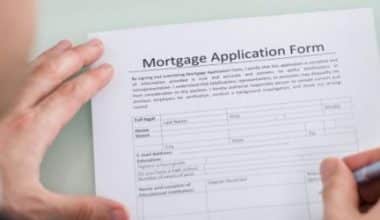There are several reasons why people choose to sell their homes. It could be because you’re relocating to a new city, upgrading to a bigger space, or simply looking to downsize your space. Whatever the reason, selling a home is a significant milestone that often marks the beginning of a new chapter in our lives. Besides, the process can be both exciting and overwhelming. With countless considerations and decisions to be made, it’s essential to have a clear understanding of the step-by-step guidelines involved when it comes to selling your home for cash quickly. Luckily, we are here to help whether you intend to selling your home with or without a realtor. This guide will walk you through the entire process of selling your home, providing you with invaluable insights, tips, and strategies to navigate each stage with confidence.
Well, this basically includes preparing your home for the market negotiating offers, and completing the final paperwork, our step-by-step guide aims to streamline the selling process, ensuring that you achieve the best possible outcome. Since we’ve done the hard work for you, kindly sit back and enjoy!
Understanding How Selling Your Home Works
Selling a home involves several processes, which include preparing the property for sale, setting an appropriate price, finding a real estate agent (optional), listing and marketing the home, conducting showings and negotiations, accepting an offer, completing inspections and appraisals, satisfying contingencies, closing the sale, and moving out. The truth is, the process is quite long; therefore, consulting with a local real estate professional is recommended to navigate the process effectively. This, however, doesn’t mean you can’t sell your home without the help of an agent. Besides, there are various selling methods, therefore, evaluate the pros and cons of each selling method and consider factors such as timeline, convenience, costs, and market conditions before choosing the approach that aligns with your goals and circumstances. Consulting with a real estate professional can provide valuable insights and guidance in selecting the best method for your property sale.
How Can I Sell My House Fast for Cash?
Selling a house quickly for cash may involve trade-offs, such as potentially accepting a lower offer or selling the property as-is. Before settling for any of these options, kindly evaluate the benefits and drawbacks of each option before making a decision. If what you really want is to sell off your house quickly for cash, the following strategies will be of help:
#1. Price it Right
Set a competitive price for your home based on its market value. Simply research recent sales of similar properties in your area to determine a fair and attractive price that aligns with current market conditions.
#2. Enhance Curb Appeal
First impressions matter, so make sure the exterior of your home is visually appealing. Invest in minor repairs, landscaping, and a fresh coat of paint, if necessary, to increase its curb appeal and attract potential buyers.
#3. Declutter and Stage
Clearing out clutter and depersonalizing your home will make it more appealing to a wider range of buyers. Therefore, consider staging your home to help buyers envision themselves living in the space. This can involve rearranging furniture, adding tasteful decorations, and creating an inviting atmosphere.
#4. Market Effectively
Use various marketing channels to reach potential cash buyers. Leverage online platforms, social media, local classifieds, and real estate websites to advertise your property. Highlight its selling points and include high-quality photos to attract attention.
#5. Consider Cash Buyers and Investors
Seek out investors or cash buyers who specialize in purchasing homes quickly. These buyers often have the funds readily available and may be willing to buy your property as-is, saving you time and effort on repairs and negotiations.
#6. Work With a Real Estate Professional
Consider hiring a real estate agent or broker who has experience with fast cash sales. They can provide valuable guidance, market your property effectively, and connect you with potential buyers in their network.
#7. Be Flexible With Terms
To attract cash buyers, be open to negotiating flexible terms. This can include accommodating a quick closing, allowing for an as-is sale, or being open to lower offers in exchange for a faster transaction.
#8. Be Prepared for Due Diligence
Cash buyers may still conduct inspections and appraisals to assess the property’s condition and value. Be prepared to address any concerns or negotiate repairs if necessary.
What are the Most Common Methods of Selling Property?
The most common methods of selling property include:
- Listing with a real estate agent
- For sale by owner (FSBO)
- Auction
- Cash buyers or investor
- Online real estate platforms
- Short sale
- Home buying companies
SELLING YOUR HOME FOR CASH
Selling your home for cash typically refers to a process where you sell your property directly to a buyer who pays in cash, bypassing traditional financing methods such as mortgages. This type of transaction can have some distinct advantages and considerations:
Advantages of Selling Your Home For Cash
Below are some of the advantages of selling your home for cash:
#1. Speed and Convenience
One of the main benefits of selling your home for cash is the potential for a quick and hassle-free sale. Since cash buyers don’t need to secure financing or wait for loan approvals, the closing process can be expedited, often taking significantly less time compared to traditional sales. This can be particularly appealing if you’re looking to sell your home quickly, such as in situations involving financial difficulties, relocation, or inherited properties.
#2. As-Is Sales
Cash buyers often purchase properties in their current condition, which means you can sell your home without having to invest in repairs or renovations. This can save you time, money, and the effort required to prepare your property for the market. Cash buyers typically understand that they are buying the property as-is and are willing to accept any existing issues or needed repairs.
#3. Avoiding Financing Contingencies
Traditional home sales often involve buyers who rely on mortgage loans, which can introduce uncertainties due to the buyer’s ability to secure financing. Cash sales eliminate the risk of deals falling through due to loan approval issues, providing a greater level of certainty and reducing the chances of unexpected complications during the sale process.
Things to Consider Before Selling Your Home For Cash
Before Selling off your home in exchange for some quick cash, kindly consider the following:
#1. Pricing
Cash buyers may expect a discounted price for your property since they are assuming the risk and offering the convenience of a quick cash transaction. You should evaluate the fair market value of your home and compare it with any potential offers to ensure you are making an informed decision.
#2. Research the Buyer
Before accepting a cash offer, it’s crucial to conduct due diligence on the buyer. Verify their financial capability to ensure they have the funds available to complete the purchase. Request proof of funds or a letter of credit from their financial institution to mitigate the risk of a deal falling through.
#3. Seek Professional Guidance
Selling a home is a significant financial transaction, so it’s advisable to consult with professionals such as real estate agents, attorneys, or property appraisers to guide you through the process and protect your interests.
Tips For Selling Your Home
Selling a home can be a complex and challenging process, but with careful planning and execution, you can increase your chances of a successful sale. First, you must note that selling a home can take time, even if you want to sell it quickly, which mostly reduces the value of the house. Therefore, be patient and remain proactive. Consider seeking advice from a real estate professional to navigate the complexities of the selling process and increase your chances of a successful sale.
The following are some tips for selling your home:
#1. Enhance your curb appeal
First impressions matter, so make sure the exterior of your home is appealing. Keep the lawn well-maintained, trim bushes, and add a fresh coat of paint if necessary. Consider adding some potted plants or flowers to add color.
#2. Stage your home
Staging involves arranging your furniture and decor to showcase the best features of your home and create a welcoming atmosphere. Declutter, depersonalize and arrange furniture to maximize space and flow. You can also add some tasteful decorations and create inviting spaces.
#3. Make necessary repairs and improvements
Take care of any outstanding repairs before listing your home. Fix leaky faucets, replace broken tiles, and ensure that all appliances are in working order. Consider making strategic upgrades that can increase your home’s value, such as kitchen or bathroom renovations.
#4. Set the right price
Pricing your home correctly is crucial for attracting potential buyers. Conduct a comparative market analysis to determine the fair market value of your property. Consider working with a real estate agent who can provide valuable insights and help you set an appropriate price.
#5. Market effectively
Utilize various marketing channels to reach a wide audience. Take professional-quality photographs of your home, create an appealing listing description, and promote it on online real estate portals and social media. You can also consider hosting open houses or hiring a real estate agent who has a strong marketing strategy.
#6. Highlight your home’s best features
Identify and emphasize the unique selling points of your property. It could be a spacious backyard, a newly renovated kitchen, or a stunning view. Highlight these features in your marketing materials and during showings to attract potential buyers.
#7. Be flexible with showings
Make your home as accessible as possible for potential buyers. Accommodate requests for showings and be willing to adjust your schedule when necessary. The more opportunities buyers have to view your home, the higher the chances of receiving offers.
#8. Negotiate effectively
Be prepared to negotiate with potential buyers. Understand your priorities and be willing to compromise on certain aspects while staying firm on others. Consider hiring a skilled real estate agent who can handle negotiations on your behalf and guide you through the process.
#9. Prepare necessary documents
Gather all the necessary paperwork and documents related to your property, such as the title deed, property taxes, mortgage information, and any warranties or guarantees. Having these documents organized and readily available can help streamline the selling process.
#10. Maintain your home’s appearance during the selling process
Keep your home clean and well-maintained throughout the selling process. Regularly tidy up before showings and ensure that your home is presentable and inviting.
Selling Your Home Without a Realtor
Is it possible to sell your home without a realtor? Of course, it is. While selling your home without a realtor can save you money on commissions, carefully evaluate whether you have the necessary knowledge, skills, and time to handle the entire process on your own. If you’re unsure, you may want to consider consulting with a real estate professional or exploring alternative options like limited-service or flat-fee brokerage services that provide assistance on specific aspects of the transaction.
Selling a home without a realtor, also known as “for sale by owner” (FSBO), can be a viable option for some homeowners who want to save on real estate agent commissions and have more control over the selling process. However, it’s important to understand the potential challenges and responsibilities that come with selling your home without professional assistance. The following tips will come in handy when it comes to selling your home without a realtor:
#1. Pricing your home
Determining the right listing price is crucial. Conduct thorough market research to understand the current real estate market conditions and compare the prices of similar homes in your area. Online valuation tools and consulting with a real estate appraiser can help you arrive at a reasonable price.
#2. Marketing and advertising
You’ll need to develop a marketing strategy to attract potential buyers. Take high-quality photos of your home, write compelling descriptions, and create an appealing listing. Utilize online listing platforms, social media, and local classifieds to reach a wider audience.
#3. Property showings
Be prepared to handle property showings and open houses on your own. Make sure your home is clean, decluttered, and staged attractively to make a positive impression on potential buyers. You’ll also need to be available to answer questions and provide information about the property.
#4. Legal considerations
Familiarize yourself with the legal aspects of selling a home, including local laws, disclosure requirements, and necessary paperwork. It’s advisable to consult with a real estate attorney who can guide you through the legal procedures and ensure you comply with all relevant regulations.
#5. Negotiating and closing the deal
When offers start coming in, you’ll need to negotiate directly with potential buyers or their agents. Being knowledgeable about the local market and having good negotiation skills can help you secure a favorable deal. Additionally, you should be prepared to handle the closing process, including coordinating with the buyer’s attorney, managing inspections, and arranging the necessary paperwork.
#6. Time commitment and expertise
Selling a home without a realtor requires a significant investment of time and effort. You’ll need to handle all aspects of the transaction yourself, from marketing to paperwork. Consider your availability and willingness to take on these responsibilities before deciding to sell FSBO.
#7. Limited access to resources
Without a realtor, you may have limited access to resources such as professional networks, market data, and marketing tools that real estate agents utilize. This could potentially impact your ability to effectively market your property and negotiate the best terms.
What are the 4 Types of Selling?
The four types if selling are;
- Transactional Selling
- Consultative Selling
- Relationship Selling
- Strategic Selling
What are the 3 Types of Sellers?
The three types of sellers are;
- Manufacturer or Producer
- Wholesaler
- Retailer
What are Methods of Selling?
The method of selling includes the following;
- Direct selling
- Retail selling
- Online selling
- Telemarketing
- Business-to-business (B2B) selling
- Direct mail marketing
- Multi-level marketing (MLM)
- Auctions
- Affiliate marketing
- Consultative selling
What Are the Four Elements of Selling?
- Product
- Price
- Promotion
- Place
- HOW TO WRITE AN APPEAL LETTER: Steps, Examples, And Templates
- EXECUTIVE COMPENSATION: What Is Executive Compensation
- HOW TO NEGOTIATE A RAISE: Proven Steps & Reviews






